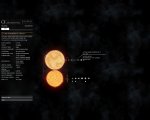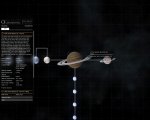Well, no matter the basis of the life, the lack of volcanism required for the transfer of minerals into the biosphere would limit the complexity of the native life form: carbon based, sulphur-based, whatever. You need trace minerals to perform catalytic metabolism especially in that cold an environment.
Carbon-based life exists at our relatively warm termperature since oxygen provides an efficient and simple metabolic fuel. Much hotter, and oxygen would be overtaken by other gases, especially carbon dioxide which are much harder to metabolize without catalysts. Plants can metabolize carbon dioxide, but they need specialized chlorophyll. That kind of evolutionary development requires many unique trace minerals, and it limits the growth of the organism which is why plants don't run around like triffids.
In a colder environment like this planet, again, you'd need catalyzers to boost chemical action needed for metabolism. The highest available oxygen content would be fairly deep underwater, but likely it's being bubbled up to the surface and maybe trapped in the ice. Without volcanoes, it would be hard to make trace minerals needed for catalysis available.
Life would likely be some kind of slow-growing algae at best. Iron would likely be the most available metal since the core should be solid. So carbon-based life would be the most likely.
On the other hand, this planet could make a fairly good home for species that aren't native... humans... or otherwise. But it's not going to grow much on its own without climate and geological change on a massive scale.


